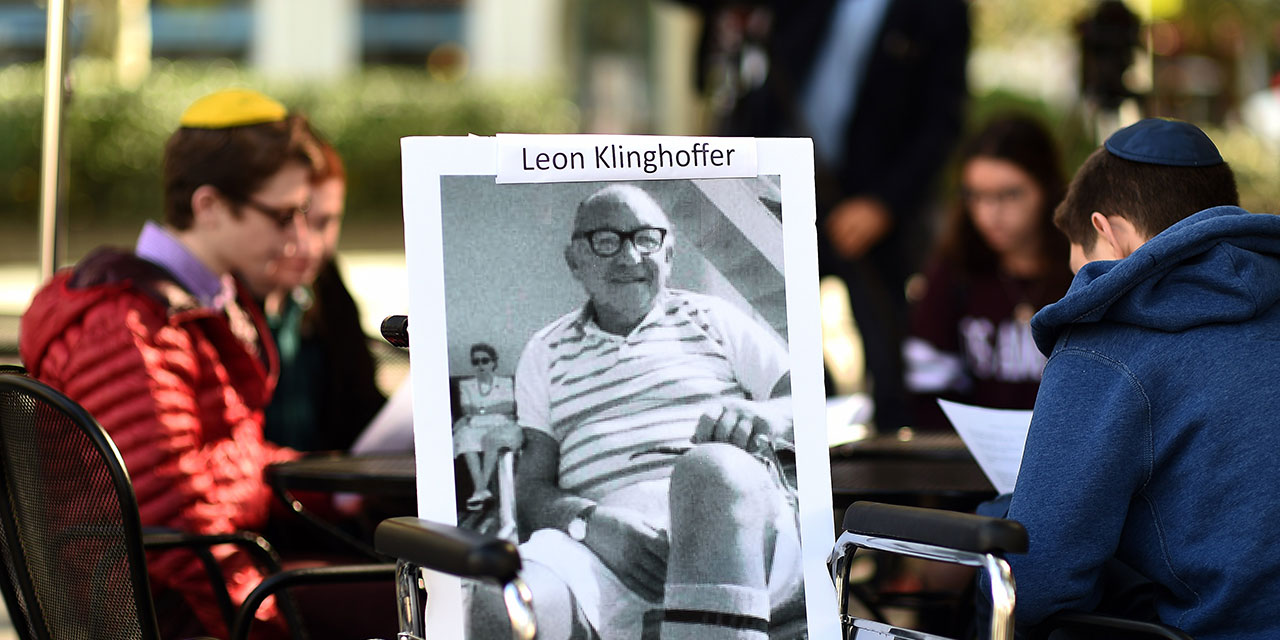
In a landmark decision late last month, a unanimous Supreme Court held in Fuld v. PLO that the Palestinian Authority (PA) and the Palestine Liberation Organization (PLO) can be sued in U.S. courts for supporting terrorism abroad. For years, the Second Circuit had dismissed such suits for lack of jurisdiction. But the high court reversed course, siding with American victims of terrorism. The decision marks a significant victory in the fight against terror and affirms Congress’s authority in that effort.
Congress has long tried to combat Palestinian terrorism abroad. Starting in the 1960s, the PLO (and later the PA) planned and supported acts of terror, not only in Israel but in other countries, including several hijackings in international skies and waters. The groups have funded attacks that hurt or killed Americans living or traveling abroad. Some victims were even targeted because they were American—such as Leon Klinghoffer, shot in the head on an Italian cruise ship in 1985 by Palestinian terrorists and thrown overboard in his wheelchair.
Finally, a reason to check your email.
Sign up for our free newsletter today.
In the Palestinian territories, terrorism is a lucrative business. The PA and PLO not only celebrate terrorists as “martyrs” but also provide generous stipends and long-term benefits to them and their families. Through a series of laws, often referred to as “Pay for Slay,” the PA offers greater rewards to those who carry out deadlier attacks and serve longer prison terms. Upon release, terrorists receive free health care, cushy government jobs, and other lifetime perks.
To counter this institutionalized terrorism, Congress enacted the Antiterrorism Act in the early 1990s, giving American victims a civil cause of action against the PA and PLO, even for attacks committed abroad. Congress aimed to allow Americans to seek justice in U.S. courts and to undermine Pay for Slay by making terrorism more costly.
But U.S. courts tossed out victims’ cases on the grounds that courts lacked personal jurisdiction—that is, authority over the parties. In response, Congress twice amended the Antiterrorism Act to grant U.S. courts jurisdiction over the PA and PLO. Yet in its most recent decision, the Second Circuit Court of Appeals struck down Congress’s latest effort—the Promoting Security and Justice for Victims of Terrorism Act (PSJVTA)—as unconstitutional, ruling that it violated the organizations’ due process rights. The court held that it was not “fair” to subject the groups to suit in the U.S., since they could not reasonably have anticipated being hauled into American courts for conduct committed abroad.
In Fuld, the Supreme Court reversed the Second Circuit and upheld Congress’s latest effort to hold the PA and PLO accountable. The PSJVTA permits American victims of terrorism to bring these organizations into U.S. courts if they continue to pay terrorists or their families under Pay for Slay, maintain offices in the United States, or engage in other U.S.-based activities unrelated to their work at the United Nations. The Court ruled that the law was a reasonable and constitutional exercise of congressional power—especially in the realm of foreign affairs, where the political branches are owed significant deference.
The ruling is a major victory for victims, who can now hold foreign terrorist organizations accountable in U.S. courts. One of the plaintiffs, Miriam Fuld, lost her husband, Ari Fuld, when a 17-year-old Palestinian terrorist fatally stabbed him at the Gush Etzion Junction. Though wounded, Ari heroically pursued and shot the attacker, preventing further harm. A native New Yorker, Ari was the father of four children and worked at a nonprofit supporting Israeli soldiers. He was just 45 years old.
The decision is also a significant win for antiterrorism policy. While Congress tailored the statute to target the PA and PLO, the Court’s reasoning affirms Congress’s broad authority to bring foreign terrorists and their sponsors before U.S. courts. That strengthens the constitutional footing of other extraterritorial statutes and clears the way for new legislation aimed at countering terrorism abroad.
In the wake of October 7, the ruling also opens the door to litigation against Hamas. And while Hamas carried out the attack that day, many other organizations—including the PLO and PA—supported and funded it, and are therefore potentially liable for aiding and abetting.
Perhaps most importantly, the Court’s decision signals that the PA and PLO have forfeited any hope of gaining respectability or leverage in Washington, even as they find support on college campuses and on the far left. The ruling makes clear that these are not quasi-sovereign entities but terrorist organizations in suits, abusing international aid and financial support.
The decision may help redirect those dollars to where they belong—to the victims of PA and PLO terrorism. Perhaps that, in turn, will prompt these groups to reconsider their policies.
Photo by JEWEL SAMAD/AFP via Getty Images
City Journal is a publication of the Manhattan Institute for Policy Research (MI), a leading free-market think tank. Are you interested in supporting the magazine? As a 501(c)(3) nonprofit, donations in support of MI and City Journal are fully tax-deductible as provided by law (EIN #13-2912529).
Source link

















